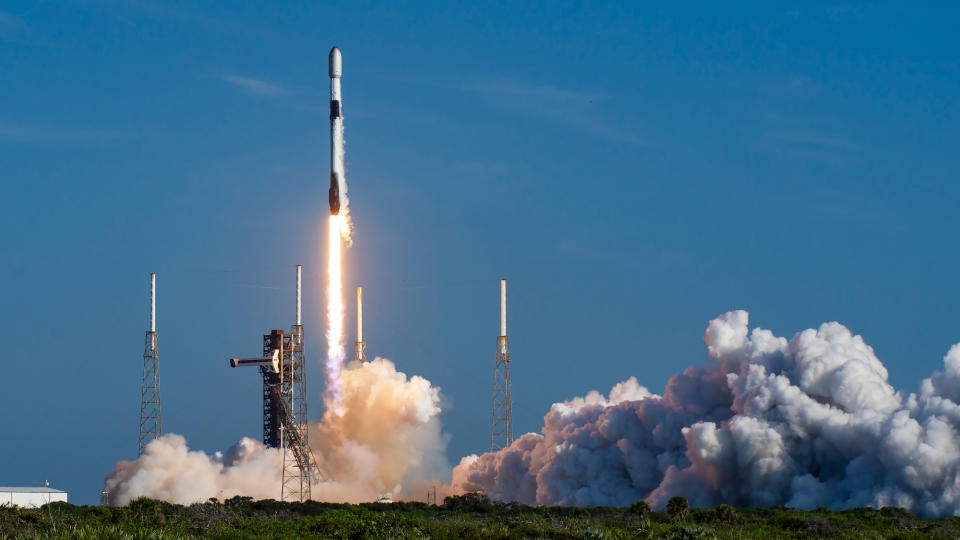When you buy through links on our articles, Future and its syndication partners may earn a commission.


SpaceX plans to launch two Earth-imaging satellites today (Aug. 15), continuing to build out the WorldView Legion constellation for Maxar.
A Falcon 9 rocket carrying the WorldView Legion 3 and 4 satellites is scheduled to lift off today from Cape Canaveral Space Force Station in Florida at 9:00 a.m. EDT (1300 GMT).
SpaceX will likely livestream the launch live via its X account, beginning about five minutes before liftoff.
The WorldView Legion constellation will eventually consist of six satellites. The first two are already up, having gotten to orbit aboard a Falcon 9 this past May.
Related: SpaceX Falcon 9 rocket launches 2 Maxar satellites on record-tying 20th flight (video)
“When all six WorldView Legion satellites are launched, it will triple Maxar Intelligence’s capacity to collect 30-centimeter-class [12 inches] and multispectral imagery,” Maxar representatives wrote in a description of the network. (Maxar Intelligence is a division of Maxar Technologies.)
“The full Maxar constellation of 10 electro-optical satellites will image the most rapidly changing areas on Earth as frequently as every 20 to 30 minutes, from sunup to sundown,” they added.
RELATED STORIES:
— 8 ways that SpaceX has transformed spaceflight
— SpaceX inks landmark deal to launch European navigation satellites: report
— The top 10 views of Earth from space
Today’s launch continues a busy stretch for SpaceX: Elon Musk’s company has launched three missions in the past five days, two of which were dedicated to building out its ever-growing Starlink megaconstellation.
SpaceX has launched nearly 80 missions already in 2024, more than 70% of them Starlink flights.
